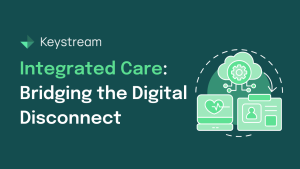09.08.2023
The Importance of a Robust Learning Management System
The role of technology in training and development of staff cannot be understated. For organisations, particularly in the NHS, where the training of a vast number of staff within tight timelines is not just an advantage but a necessity, the need for an efficient Learning Management System (LMS) is paramount. This article aims to shed light on why a robust LMS is critical, especially when it comes to hosting SCORM-compliant eLearning modules and acting as a repository for various training materials.
1. Centralised Repository for Diverse Training Materials:
An LMS is not just a platform to host eLearning modules. Its value lies in its ability to serve as a central repository for all kinds of training materials. This includes user guides, quick reference guides, videos, and any other vital training collateral. Such centralisation ensures consistency in training, ease of access, and simplifies the update process.
2. User-Friendly Navigation:
The best tools are those that can be easily utilised by their users. It is essential for an LMS to have an intuitive and logical user interface. Staff should be able to effortlessly navigate through the system, whether they’re looking for specific training modules, resources, or registering for courses.
3. Streamlined Registration Process:
In large organisations, training isn’t always a solo journey. Managers or team leaders may need to enrol multiple members or even entire teams onto courses. A top-tier LMS should simplify this process, allowing for both individual and bulk registrations without unnecessary complications.
4. Comprehensive Reporting Capabilities:
Data drives decisions. For training administrators and decision-makers, the LMS should provide real-time management reports. These reports should offer insights into attendance, pass rates, and importantly, Did Not Attends (DNAs). Such data is invaluable in gauging the effectiveness of training and identifying areas of improvement.
5. Proactive Response to Non-Attendance:
When training upwards of 15,000 staff within a 6–8-week window, every missed training opportunity counts. Recording DNAs accurately is not just about keeping records; it’s about the ability to react and reschedule promptly. Non-attendance can be due to various reasons, but the key is to ensure that the training opportunity is not lost but merely postponed.
Conclusion:
In the rapidly evolving digital transformation landscape, training plays a pivotal role in ensuring that staff are equipped with the latest knowledge and best practices. A robust LMS is not just a tool but a strategic asset. It consolidates training materials, simplifies access, provides actionable data, and ensures that training objectives are met efficiently. As healthcare organisations look towards the future, the importance of such a system in their training arsenal cannot be emphasised enough.









